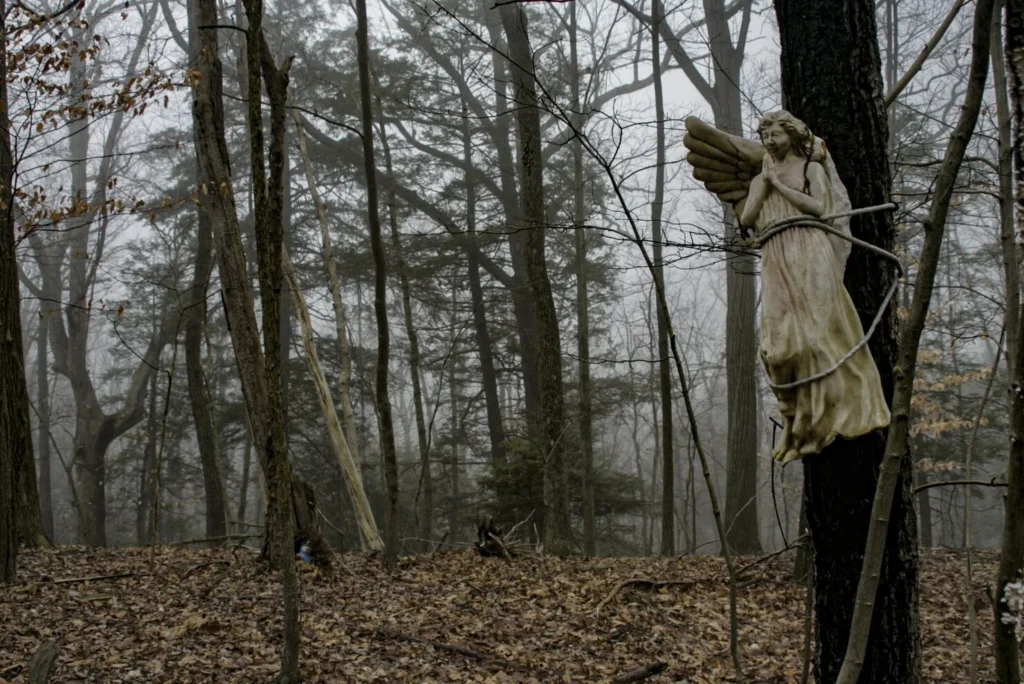Introduction to Trails Carolina and Alec Lansing
In the serene backdrop of the North Carolina mountains, Trails Carolina has long been known as a haven for troubled teens. This therapeutic program aims to help young individuals navigate their challenges and find healing in nature. However, behind its welcoming façade lies a tragic story that shook this community to its core—the trails carolina death Lansing.
Alec was a bright kid with dreams and aspirations just like any other teenager. Yet, his struggles led him to Trails Carolina, where hope mingled with uncertainty. The circumstances surrounding his untimely passing have sparked outrage and prompted countless questions about safety protocols within such programs. As the dust settles on this heartbreaking incident, it raises vital discussions about what we can learn from Alec’s story and how it might change the future of similar facilities across the nation.
The Events Leading up to Alec’s Death
Alec Lansing was a bright teenager, but he faced significant challenges. He struggled with behavioral issues and mental health concerns that led his family to seek help from Trails Carolina.
In the months leading up to his tragic death, Alec experienced turmoil. Reports indicate that he felt isolated and misunderstood in the program designed for troubled teens.
Despite efforts made by staff at Trails Carolina, Alec’s mental state deteriorated. Significant incidents occurred that raised alarms among peers and parents alike.
Friends described him as a young man who often expressed feelings of hopelessness. The support system around him seemed inadequate during this critical time.
The day before the tragedy unfolded, there were clear signs of distress. Those close to him sensed something was wrong but could not predict what would happen next.
Controversies Surrounding the Incident
Alec Lansing’s death at Trails Carolina sparked intense scrutiny and debate. Many questioned the facility’s practices, raising alarms about safety protocols.
Critics highlighted a lack of proper supervision during high-risk activities. They argued that inadequate training contributed to Alec’s tragic fate. This led to allegations of negligence by the staff.
Parents and advocates voiced concerns over transparency. Families wanted answers but felt left in the dark regarding investigations into the incident.
The media frenzy further complicated matters. Sensational headlines often overshadowed nuanced discussions about mental health treatment for troubled teens.
As details emerged, some former employees came forward with their experiences at Trails Carolina, adding fuel to an already volatile situation. The dichotomy between personal anecdotes and official statements created a whirlwind of controversy surrounding this heartbreaking event.
Legal Actions Taken by Alec’s Family
After the tragic death of Alec Lansing, his family took decisive action. They sought justice through legal channels, aiming to hold Trails Carolina accountable.
Their lawsuit alleged negligence and wrongful death. The family claimed that the facility failed to provide adequate care and supervision for their son. This sparked a deeper investigation into practices at the treatment center.
As details emerged, questions arose about safety protocols and staff training. The family’s pursuit of justice highlighted systemic issues within the troubled teen industry.
Alec’s parents hoped their efforts would bring about change. They wanted other families to avoid similar heartbreak in the future. Their actions served as a reminder of the importance of accountability in therapeutic environments.
The case drew attention from media outlets and advocacy groups alike. It became a rallying point for those seeking reform in youth residential programs across the country.
Impact on Trails Carolina and the Troubled Teen Industry
The tragic death of Alec Lansing sent shockwaves through Trails Carolina, a program designed to support troubled teens. This incident highlighted the potential dangers associated with wilderness therapy programs.
In the wake of Alec’s passing, many families began questioning safety protocols within these facilities. Concerns over staff training and emergency response procedures became more prevalent. Parents wanted reassurances that their children would be safe while seeking help.
Trails Carolina faced increased scrutiny from media and regulatory bodies. The public demanded transparency in how such programs operate. As a result, organizations within the troubled teen industry started reevaluating their practices.
The tragedy also sparked discussions about mental health resources available for adolescents. Advocates emphasized the need for comprehensive care tailored to individual needs rather than one-size-fits-all approaches often seen in wilderness therapy settings.
Lessons Learned and Changes Made Since Alec’s Death
Alec Lansing’s tragic death sparked a wave of introspection within the troubled teen industry. In its aftermath, Trails Carolina took significant steps to address safety protocols.
New training programs have been implemented for staff, focusing on crisis intervention and mental health support. The aim is to equip employees with the skills necessary to respond effectively in high-pressure situations.
Additionally, transparency has become paramount. Families are now more involved in treatment plans and decision-making processes, fostering trust between parents and the facility.
State regulations have also tightened across similar programs nationwide. These changes reflect a growing awareness of the need for accountability within therapeutic environments that cater to vulnerable youth.
Furthermore, ongoing evaluations ensure that facilities can adapt quickly as new challenges arise in adolescent care. This responsiveness symbolizes a commitment not just to healing but ensuring such tragedies do not repeat themselves.
Conclusion: Moving Forward in Light of Tragedy
The aftermath of Alec Lansing’s tragic death has cast a long shadow over Trails Carolina and the broader troubled teen industry. The incident not only raised questions about safety protocols but also highlighted the need for greater oversight in therapeutic programs.
As discussions continue, both families and organizations are advocating for stricter regulations to ensure that no other family experiences such a devastating loss. Conversations surrounding mental health treatment have become more urgent, driving initiatives aimed at improving care standards for vulnerable youth.
While Alec’s story is one of heartache, it has sparked necessary dialogues about accountability and reform within these programs. Stakeholders across the board recognize the importance of creating environments where young people can heal without fear or risk.
Moving forward requires collective effort from all involved—families, practitioners, and policymakers alike—to transform this tragedy into meaningful change. The community remains hopeful that lessons learned will lead to improved practices that prioritize safety and well-being above all else.
FAQs
What is “Trails Carolina Death”?
“Trails Carolina Death” refers to the tragic incident involving Alec Lansing, a teenager who died under distressing circumstances while enrolled in the Trails Carolina wilderness therapy program. His death prompted widespread scrutiny and discussions about safety protocols in such programs.
What happened to Alec Lansing at Trails Carolina?
Alec Lansing, a 17-year-old participant at Trails Carolina, went missing in November 2014. His body was later found nearby, with the cause of death determined to be hypothermia and a broken hip. His disappearance and death raised serious concerns about the program’s safety measures.
What controversies arose from Alec Lansing’s death?
Alec’s death led to controversies including allegations of negligence and inadequate supervision by Trails Carolina staff. Critics argued that safety protocols were insufficient, which ignited debates about the broader troubled teen industry and its practices.
What legal actions did Alec’s family take?
Alec Lansing’s family pursued legal action against Trails Carolina, alleging wrongful death and negligence. Their lawsuit aimed to hold the facility accountable and prompted a deeper examination of safety and care standards in similar programs.
How has Trails Carolina changed since Alec Lansing’s death?
Since Alec’s death, Trails Carolina has implemented new staff training programs and increased transparency with families. The incident also led to tighter state regulations and a broader reevaluation of safety protocols across wilderness therapy programs.







